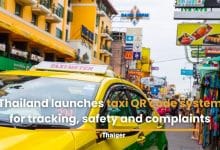Thailand pumps the brakes on private sector traffic perks

The Ministry of Transport firmly dismissed allegations from the opposition that its proposed traffic congestion fees will disproportionately benefit the private sector, asserting that the policy is designed with accountability in mind.
Deputy Transport Minister Surapong Piyachote addressed concerns raised by Suphanat Meenchainan, a Bangkok MP from the opposition People’s Party, during a House meeting yesterday, October 24.
Transport Minister Suriya Jungrungreangkit put forward a proposal to introduce a traffic congestion fee for motorists on busy roads in Bangkok. The charges are expected to range from 40 to 50 baht per vehicle for access to congested roads serviced by electric train lines.
The revenue generated from these fees will contribute to a 200-billion-baht fund aimed at repurchasing concessions from private companies invested in electric train lines. This fund is intended to support a 20-baht flat-rate fare across all electric train lines following the buy-back.
Notably, the 20-baht fare has already been implemented on the Purple and Red lines operated by the State Railway of Thailand.
Suphanat criticised the government’s approach, suggesting it should prioritise addressing issues with public buses, which are the primary mode of transportation, rather than instituting fees that push more commuters towards electric trains, potentially benefiting private concessionaires.
The MP questioned the Ministry of Transport’s capability to reform the entire mass transit system within the promised six-month timeframe. Suphanat highlighted the chronic problems in extending bus transport coverage throughout Bangkok, which has forced many commuters to rely on taxis.
“Why does it seem that the Ministry of Transport, under the ruling Pheu Thai Party, is attempting to generate revenue for private sector entities like electric train and expressway companies? Are you confident in your ability to resolve the mass transit issues?”
In response to Suphanat’s inquiries, Surapong assured that the ministry is implementing measures to ensure the congestion fee collection method remains accountable. He emphasised that the system will not favour any business or investor.
The Ministry of Transport’s report reveals that 390,000 vehicles traverse Bangkok roads daily, significantly contributing to air pollution by elevating PM2.5 fine dust particle levels.
The report indicated that managing road transportation is crucial for pollution mitigation. Surapong stated that the traffic policy plan is designed with this environmental consideration in mind, reported Bangkok Post.
Latest Thailand News
Follow The Thaiger on Google News:


























